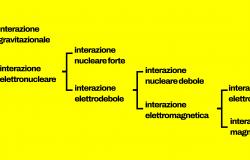“It is not too late for Ukraine to win” in the war against Russia, provided that the West keeps their promises to provide it with more weapons, the NATO chief said on Thursday .
• Read also: Ukraine: ten dead in Russian and Ukrainian attacks
• Read also: Macron warns of the “death” of Europe
• Read also: Ukraine: a village liberated from the Russians but still prisoner of mines
“In recent months, NATO allies have not provided the support” they had promised, regretted Jens Stoltenberg, in a speech given at an awards ceremony in Berlin on transatlantic ties.
“But it is not too late for Ukraine to win, because stronger support is on the way,” added the Alliance Secretary General.
“It is now our responsibility to transform (recent Western commitments, editor’s note) into real deliveries of arms and ammunition, and to do so quickly,” he judged.
Last Friday, Ukrainian President Volodymyr Zelensky urged NATO to deliver weapons as quickly as possible to Ukraine, which “cannot wait any longer” in the face of Russian pressure. The Allies had promised to increase their support.
Ukraine has suffered setbacks on the battlefield due in part to the failure of allies to keep aid promises, while a bill to increase US support was long blocked by political quarrels.
Mr. Stoltenberg, however, welcomed the approval by Congress of the vast American military assistance plan for Ukraine of more than $60 billion, and the commitments to the same effect made by other countries, including Great Britain, Germany and the Netherlands.
Separately, Mr. Stoltenberg lashed out at China, accusing Beijing of “supporting Russia’s war economy” by sharing cutting-edge technologies that can be used to produce missiles, tanks and planes.
“China says it wants to maintain good relations with the West. At the same time, Beijing continues to fuel the largest armed conflict in Europe since World War II,” he said.
“They cannot have it both ways,” insisted Mr. Stoltenberg, who was awarded the Eric Warburg Prize in Berlin, rewarding a personality who has particularly worked for transatlantic relations.
Berlin and Beijing have traditionally enjoyed close economic relations, with German companies investing considerable sums in China and exporting goods heavily to the world’s second-largest economy.






